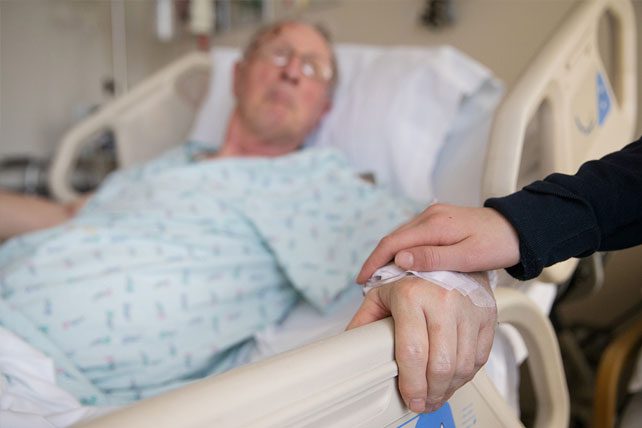In the bustling, often overwhelming environment of a hospital, where the stakes are high and emotions run deep, hospital chaplains play a crucial role in providing spiritual support and comfort. These dedicated men and women are the hands and feet of Christ, offering prayer and guidance to patients, medical professionals and families during some of the most challenging moments of their lives.
Hospital chaplains are more than just spiritual caregivers; they are ministers of God’s grace in the midst of life’s most intense trials. Whether in the emergency room, at the bedside of a dying patient or in quiet moments of reflection, chaplains are called to serve as the compassionate presence of Christ. This calling requires deep spiritual strength, profound empathy, and unwavering faith.
For chaplains, prayer is not just a tool of ministry; it is the lifeline that sustains them. Through prayer, they draw strength from God to face the daily challenges of their work, seeking his wisdom and guidance as they navigate complex emotional and spiritual landscapes. They pray for the right words to comfort the grieving, the insight to understand the unspoken needs of the sick and the grace to bear the burdens they witness every day.
Prayer has long been recognized as a source of healing—both physically and spiritually. In the hospital setting, where science and medicine take center stage, prayer offers an essential complement, addressing the holistic needs of patients. While doctors and nurses focus on healing the body, chaplains focus on healing the soul.
Patients often turn to chaplains for prayer when they feel vulnerable, scared, or alone. A chaplain’s prayer can provide peace amid pain and hope in the face of uncertainty. For many, these moments of prayer are as crucial to their recovery as any medical treatment.
Research has shown that prayer can reduce stress, lower blood pressure and improve overall well being. But beyond the measurable benefits, prayer offers something even more profound: a deep, abiding sense of God’s presence.
The work of doctors, nurses, and other medical professionals is incredibly demanding, both physically and emotionally. They are often the first to witness suffering, the first to respond in emergencies and the first to provide care in life-threatening situations. The weight of these responsibilities can lead to burnout, compassion fatigue, and emotional exhaustion.
Hospital chaplains play a crucial role in supporting these caregivers through prayer. By offering prayers for strength, endurance, and peace, chaplains help medical professionals carry their burdens. These prayers remind them that they are not alone in their work.
When a loved one is seriously ill, families often experience a range of emotions—fear, helplessness, and sorrow. The uncertainty of the future can be overwhelming, and the waiting can feel endless. In these moments, hospital chaplains step in to offer comfort through prayer.
Chaplains listen to their concerns, offer words of encouragement and lift up prayers that express the hopes and needs of the family. These prayers often focus on trusting in God’s plan, seeking his comfort and finding his peace amid chaos.

